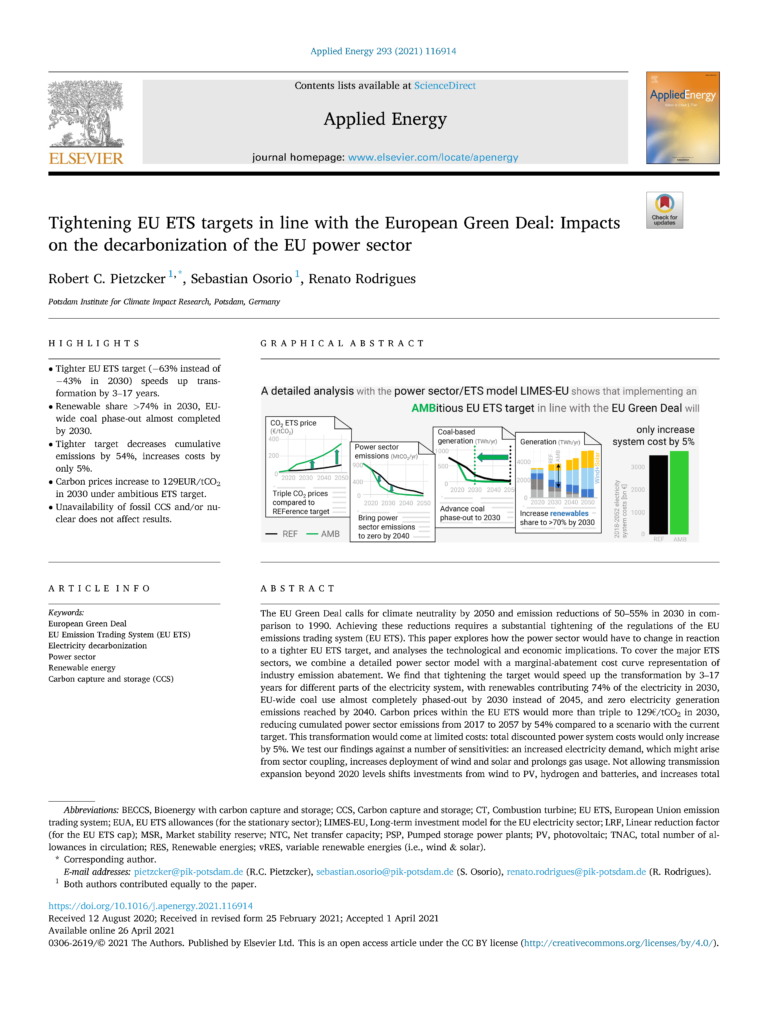Tightening EU ETS targets in line with the European Green Deal
Impacts on the decarbonization of the EU power sector

- Title
- Tightening EU ETS targets in line with the European Green Deal
- Author(s)
- Robert C. Pietzcker, Sebastian Osorio and Renato Rodrigues
- Organisation
- Potsdam Institute for Climate Impact Research
- Year
- April 2021
- Type
- Study
- Length
- 18 p.
- Keywords
- Climate targets, Investments
Abstract
The EU Green Deal calls for climate neutrality by 2050 and emission reductions of 50–55% in 2030 in comparison to 1990. Achieving these reductions requires a substantial tightening of the regulations of the EU emissions trading system (EU ETS). This paper explores how the power sector would have to change in reaction to a tighter EU ETS target, and analyses the technological and economic implications. To cover the major ETS sectors, we combine a detailed power sector model with a marginal-abatement cost curve representation of industry emission abatement. We find that tightening the target would speed up the transformation by 3–17 years for different parts of the electricity system, with renewables contributing 74% of the electricity in 2030, EU-wide coal use almost completely phased-out by 2030 instead of 2045, and zero electricity generation emissions reached by 2040. Carbon prices within the EU ETS would more than triple to 129€/tCO2 in 2030, reducing cumulated power sector emissions from 2017 to 2057 by 54% compared to a scenario with the current target. This transformation would come at limited costs: total discounted power system costs would only increase by 5%. We test our findings against a number of sensitivities: an increased electricity demand, which might arise from sector coupling, increases deployment of wind and solar and prolongs gas usage. Not allowing transmission expansion beyond 2020 levels shifts investments from wind to PV, hydrogen and batteries, and increases total system costs by 3%. Finally, the unavailability of fossil carbon capture and storage (CCS) or further nuclear investments does not impact results. Unavailability of bioenergy-based CCS (BECCS) has a visible impact (18% increase) on cumulated power sector emissions, thus shifting more of the mitigation burden to the industry sector, but does not increase electricity prices or total system costs (<1% increase).










